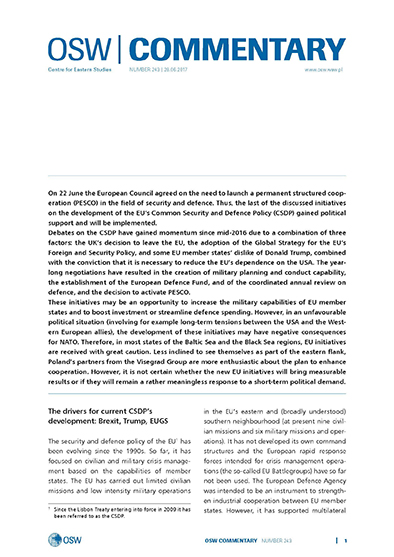Ukraine–Hungary: the intensifying dispute over the Hungarian minority’s rights
Ukraine–Hungary: the intensifying dispute over the Hungarian minority’s rights
Author(s): Tadeusz Iwański, Andrzej Sadecki
Subject(s): Politics
Published by: OSW Ośrodek Studiów Wschodnich im. Marka Karpia
Keywords: Ukraine–Hungary; Hungarian minority’s rights
Summary/Abstract: For nearly one year relations between Hungary and Ukraine have been plunged in the worst crisis since the collapse of the USSR. The main cause of the tension has been the Education Act passed by the Ukrainian parliament in September 2017 which envisages a comprehensive reform of the education system and at the same time imposes serious restrictions on the use of the languages of national minorities, including Hungarian, in school education. In response to this, Budapest severely criticised Kyiv and took measures to block the establishment of closer relations between Ukraine and NATO, insisting that the act be changed. In turn, Ukraine took steps to soften Budapest’s stance and asked the Venice Commission to evaluate the act and then declared that it would follow the recommendations provided in the evaluation. The deficit of trust which has existed for years and the fact that neither of the parties had taken real steps to reach a compromise prevented them from reaching an agreement that had seemed close in May and June this year. The conflict was escalated further when the Hungarian government appointed a ministerial commissioner for the development of Zakarpattia Oblast (in Ukraine), which met with a harsh reaction from Kyiv and was interpreted as interfering with Ukraine’s internal affairs.The dispute over the Hungarian minority’s rights in Ukraine is about historical and identity related issues that are very important to both sides, and it is highly unlikely that it will be resolved in the coming months. While these issues have always been at the core of Budapest’s foreign policy, especially with regard to the countries where the Hungarian minorities live, Kyiv neglected them until 2014. However, since the Russian annexation of Crimea and the aggression in the Donbass, Ukraine has been taking comprehensive measures aimed at decommunisation and derussification. The consequences of this include on the one hand a Ukrainisation of the public space, the media and the education system, and on the other restricting national minorities’ rights in Ukraine as regards the use of their language in the education system. For those reasons, both sides are likely to firmly stick to their stances and to be looking for current political benefits resulting from the conflict rather than taking action to reach a compromise.
Series: OSW Commentary
- Page Count: 7
- Publication Year: 2018
- Language: English
- Content File-PDF

